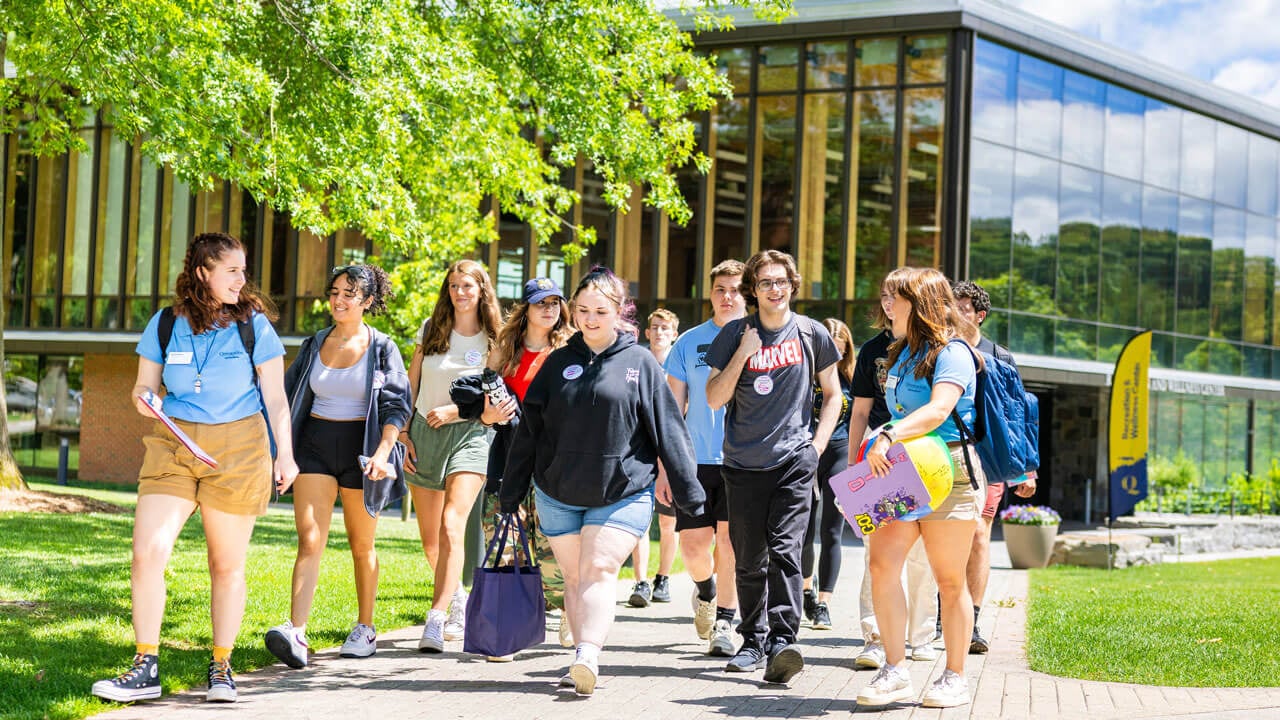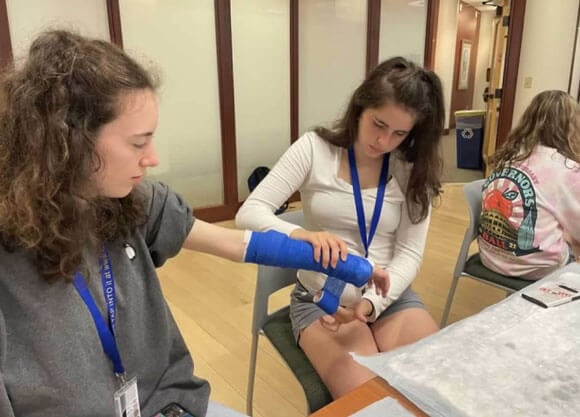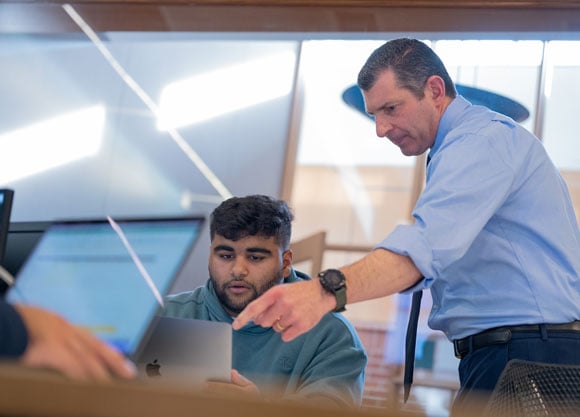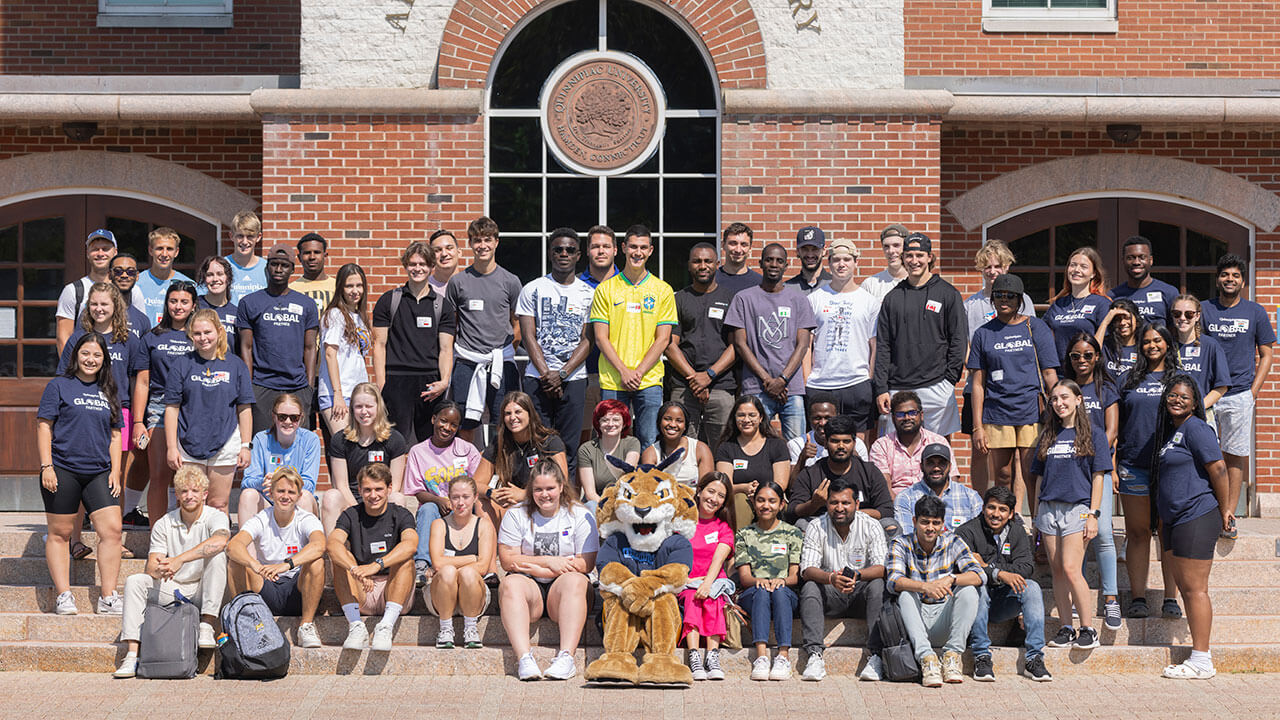
Over the course of your high school career there are several things you can do to build not only your resume but to grow and set yourself up for a positive college application experience
What do colleges look for in applicants?
1. Academics
Strong academics is one predictor that influences long-term achievement. When a student can manage an academic schedule successfully, it shows that they possess skills that will translate into other areas of their life, including college academics. Good grades demonstrate intelligence, but they also show that a student is organized, possesses time management skills and is motivated to do well.
If your high school offers career tracks, follow one that you have a passion for. If not, you may also consider asking your guidance counselor to help you create your own concentration in an area of interest through elective courses.
Additionally, Advanced Placement (AP), honors or college level courses show the admissions committee that you are ready for college work. Some colleges, including Quinnipiac University, award credit for AP and college-level classes completed as part of the high school curriculum. Learn more about advanced standing credit
Although a strong GPA and advanced course selection is an important factor when considering a high-quality applicant, this is only one piece of total applicant.
2. Extracurricular Activities
Participating in extracurricular activities allows you to expand your interests, try new things and excel outside of the classroom. These can include school-sponsored and community activities like clubs, sports, the arts and other interests such as community service, student government or political activist groups.
Pursuing extracurricular activities allows students to shine in areas outside the classroom and show their diversity, leadership, interests and passions. If these activities happen to align with your desired college major, your participation will demonstrate your interest and experience to college admissions teams.
However, students also need to know their limits and find a good balance between their studies and outside activities. Remember that colleges look for well-rounded applicants that are prepared for a successful and impactful college experience.
3. Essays and Writing Samples
Essays and writing samples are an important part of your application as they provide color to your application beyond just your test scores. Here, showcase your technical writing and storytelling skills to tell the admissions team what makes you unique.
Write about a specific event, person or circumstance that has had an impact on your life. Share your personal story in a way that lets the admissions team get to know you on a personal level. They already know about your grades, accolades and recommendations. This is your time to share your own story with them.
An essay can be the difference between two similar candidates; so, spend time on this and don’t be afraid to ask for help from your high school guidance counselors and teachers. Ultimately, colleges want strong candidates who will be a good fit for their school — your essay is your opportunity to show them that you are a good match.
4. Letters of Recommendation
Letters of recommendation reveal a side of the student from a different perspective and are essential to the application process. Coaches, teachers, advisors and administrators provide insights into your personality that can’t be quantified. They notice things like leadership, kindness, and integrity.
When asking for recommendation letters, consider the people that can best describe your strengths, interests and ambitions. For example, if you are interested in health sciences, ask your biology teacher for a recommendation. If you want to share your leadership ability and you excel as part of a team, you may want to ask your coach or advisor to write a recommendation regarding this quality. This part of your application is an important piece in showing that you are a highly qualified candidate for college admissions through your actions.
5. Interest in the Institution
It is worth the time and effort to demonstrate interest in a college, especially ones that are your top choices. Begin by simply requesting more information or reaching out to the admissions team. Your admissions counselor will be a vital connection to the university – once you’ve been assigned a point of contact, be sure to reach out and introduce yourself. This person will be a valuable resource throughout the application process and can answer any questions you have along the way.
In addition to showing your interest in a specific school, there are several advantages of exploring your top schools more deeply:
-
You’ll become familiar with programs, facilities, housing and even begin to make connections with faculty.
-
You’ll get a feel for university events, student-sponsored clubs, activities and even make connections with other prospective students on their social channels.
-
You’ll gain a different perspective from being on campus than the one you experience in print or on the website.
Make sure you visit the schools you are interested in, as exploring the campus could make a difference in your final decision. Doing so will also afford you the opportunity to demonstrate your level of interest to the admissions team, as well as foster connections and gain a better student perspective of the environment.
6. Interest in Your Area of Study
If you’re going into college with a clear idea of what you’d like to study, it can be beneficial to convey your interest in your desired program in your application. High school courses, clubs and extracurricular activities that align with your intended major are great ways to show colleges what you can bring to their program.
However, it’s okay if you are not sure what you want to major in at this point in your process. In fact, 20-50% of first-year students enter college with an undeclared major and 75% change during their undergraduate studies. Even if you are unsure of a specific major, you may have a passion or an interest that you want to explore.
Quinnipiac has 16 unique areas of interest to help you discover which programs align with career goals and your passion. Quinnipiac also has several undeclared options within certain schools for incoming students. These allow you to explore within your area of interest during your first year on campus. Many students who are unsure of the exact major take advantage of this unique opportunity.
Preparing Yourself as a Stand-Out Applicant
Preparing yourself for college throughout your high school career can feel intimidating, but it doesn’t have to be. The most important thing to remember is to be yourself and invest in your future. Expand your college resume by joining clubs, volunteering in your community, prioritizing academics and pursuing your passions. With the appropriate preparation, you’ll be able to position yourself as a well-rounded applicant and stand out during the admissions process.
If you have questions about college preparation or beginning the application process, connect with a Quinnipiac admissions counselor today. Our dedicated admissions staff can help you at every step along the way and make the journey to college a positive experience.
In this Article
Stay in the Loop
Quinnipiac Today is your source for what's happening throughout #BobcatNation. Sign up for our weekly email newsletter to be among the first to know about news, events and members of our Bobcat family who are making a positive difference in our world.
Sign Up Now




























